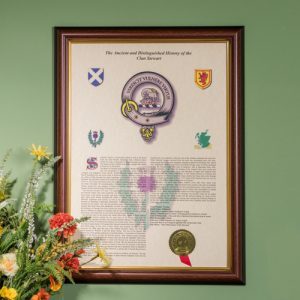Your basket is currently empty!

How To Trace Your Welsh Ancestors
Posted on
Trace your Welsh Ancestors with our handy guide. Our friends at Who Do You Think You Are? Magazine have kindly provided the following article, with great tips and links.
As the BBC’s Who Do You Think You Are? series traced the family tree of Welsh-born comedian Greg Davies, Jonathan Scott reveals six fantastic websites to aid your research in the country.
1. National Library of Wales
The National Library of Wales (NLW) either leads or has a hand in several of the other websites and projects featured below.
The NLW’s main website homepage signposts all kinds of information aimed at beginners, plus descriptions of the library’s vast holdings – it’s home to around 950,000 photos, 1,500,000 maps, 5,000,000 digital images and e-resources, and 15km of archives.
It holds the Church in Wales Archive, preserving registers of baptisms, marriages and burials, as well as Bishops’ Transcripts, wills and marriage bonds.
One of several important online tools is the Welsh wills probate database, which provides digital images of wills proved in Welsh ecclesiastical courts before the civil probate system was introduced in 1858.
2. The Wales Collection
Findmypast’s Wales Collection was launched in 2011 through a partnership with the NLW and the Welsh County Archivists Group.
The collection includes marriages, baptisms and burials from county record offices across Wales, plus material held by the NLW.
From this landing page you can explore datasets from each county – click on Caernarvonshire Banns, for example, and you discover these stretch from 1752 to 1926, and these may reveal your ancestors’ names, marital status, and when and where they got married. You may even be able to find out if the marriage didn’t go ahead.
3. CYMRU 1914
The CYMRU 1914 centenary project has seen the digitisation of sources relating to the First World War within libraries, special collections and archives across Wales.
It launched in 2013, and you can browse its catalogue by source type – newspapers, journals, sound recordings and more. While you may not find a reference to an ancestor, it has fascinating material which may inspire your research.
There’s also the educational Wales at War website, which is building biographies of Welsh men and women who lost their lives.
4. Archives Wales
This is the single-search hub to more than 7,000 collections across 21 archives in Wales – the equivalent of TNA’s Discovery – and also the body which leads all kinds of cross-archive projects.
The ‘Find your archive’ tab leads to a list of contributing archives from Aberystwyth University Archives. This also give information from Wrexham Archives and Local Studies. There are descriptions of key collections, contact details and links.
Remember that the ‘Search’ box near the top of the page conducts searches within the website itself – go back to the homepage to road test the catalogue. A search for “Scott”, for example, turned up anti-slavery letters in Aberystwyth and deeds in Denbighshire.
5. Welsh journals and newspapers
This website grants access to around 15 million articles and 1.1 million pages from a huge range of Welsh- and English-language titles, and you can narrow your search to focus on family notices and other announcements.
Unlike the British Newspaper Archive, access is completely free. There’s also the NLW’s sister website Welsh Journals, which is due for an overhaul in 2017 and provides access to journals published in Wales during the 19th and 20th centuries.
6. Expert’s choice: Cynefin
Chosen by Beryl Evans, NLW Research Services Manager and author of Tracing Your Welsh Ancestors, published by Pen & Sword Books:
“One of my favourite websites is Cynefin. It provides access to over 1,200 digitised tithe maps and associated apportionments.
Many of us will have traced our family history back through civil registration, parish records and census returns. These go back to the 1840s, when these maps were created.
They were often the earliest large-scale maps of our towns and villages. Map apportionments not only help locate the places where our ancestors lived. They also give us other information relating to ownership. Such as the acreage of land, crops, field names, occupancy and rights of way.
The website is not searchable as this is the crowd sourcing platform, through which users can transcribe and georeference the documents. This work will soon come to an end. This year a new geographic website by the National Library of Wales, Places of Wales is due for launch.
The new site will enable searching and browsing by location. This interface will initially include the output of the Cynefin project. In addition, this will also feature a unified tithe map for the whole of Wales as it was in the 1840s.
The intention for the future is to add more National Library of Wales material to the site.”
Thank you to our friends at Who Do You Think You Are? Magazine for providing this useful information on how to trace your Welsh ancestors.
Check out the coat of arms and surname history for your own surname here.

Leave a Reply